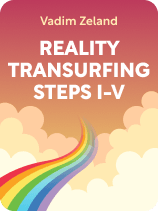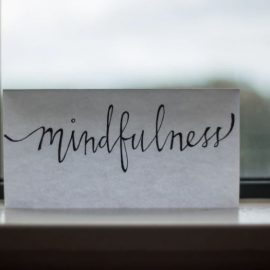

This article is an excerpt from the Shortform book guide to "Reality Transurfing Steps I-V" by Vadim Zeland. Shortform has the world's best summaries and analyses of books you should be reading.
Like this article? Sign up for a free trial here.
Do you want a better understanding of why things are the way they are? How can you intentionally ignore unwanted circumstances?
Vadim Zeland claims that self-observation has two major benefits. First, it helps you understand why you’re experiencing your version of reality instead of the version of reality that you want. Second, it breaks the feedback loop that perpetuates your current version of reality.
Read more to learn how observing your thoughts and emotions helps you weaken unwanted circumstances and reclaim your emotional energy.
Benefit #1: You Understand Your Reality Better
According to Zeland, the first benefit of self-observation is that it helps you understand why you’re experiencing your version of reality. It does this by revealing how participating in your version of reality creates a feedback loop that perpetuates this reality. For example:
- An experience occurs in your version of reality that draws your attention (for example, you receive a job rejection).
- Because you’re thinking about what’s happening, you transmit emotional energy that matches this specific experience (you think about how unfair life is and feel like a failure).
- This emotional energy is reflected back to you in the form of similar experiences. (Since self-pity dominates your frequency, your version of reality creates more self-pitying experiences—for example, you lose your keys and receive additional job rejections.)
- You then think about these similar experiences, and so on.
| How Unconscious Biases Reinforce Feedback Loops Psychological research expands upon how feedback loops perpetuate similar experiences by explaining that your habitual thoughts, feelings, and behaviors are influenced and reinforced by cognitive biases. Cognitive biases are the result of your brain’s attempt to make quick judgments based on your past experiences, and they shape the way you think about, perceive, and react to everything that happens. There are many different types of cognitive biases, and each of them influences your perception in different ways. Two common cognitive biases are 1) confirmation bias, the tendency to pay more attention to information that confirms and reinforces your opinion; and 2) negativity bias, the tendency to notice and dwell on the negative aspects of your experiences. The example in the four-step process above demonstrates how both of these biases reinforce how you think and feel—causing you to continually transmit emotional energy that creates unfair experiences. Your confirmation bias influences you to only notice and interpret experiences that reinforce your feelings of self-pity. Likewise, your negativity bias keeps you focused on what you dislike or fear about your experiences. As a result, both biases keep you mired in feelings of failure—which, according to Zeland, ensures that you’ll continue to experience, participate in, and perpetuate circumstances that make you feel like a failure. |
Benefit #2: You Break the Feedback Loop
Zeland argues that the second benefit of observing your thoughts and emotions is that it helps you remain emotionally detached from unwanted circumstances. This breaks the feedback loop that perpetuates this reality and makes you less susceptible to wasting your energy on what you don’t want. For example:
- You receive a job rejection.
- You remain detached, simply observing your thoughts and feelings about the rejection.
- Because you don’t get emotionally involved in the rejection, you preserve your energy and prevent your emotional energy from perpetuating similar experiences.
(Shortform note: According to Grant Cardone (The 10X Rule), observing yourself offers another advantage: It encourages you to take responsibility for all your circumstances and empowers you to view unwanted experiences as opportunities for growth. As a result, you proactively seek ways to amend your thoughts, feelings, and behaviors to prevent unwanted experiences from reoccurring—which frees up energy to focus on getting what you want. On the other hand, remaining unaware of how you create your circumstances encourages a victim mentality: Instead of taking responsibility for unwanted experiences, you waste energy blaming others, feel powerless to move forward, and stay focused on what you don’t want.)

———End of Preview———
Like what you just read? Read the rest of the world's best book summary and analysis of Vadim Zeland's "Reality Transurfing Steps I-V" at Shortform.
Here's what you'll find in our full Reality Transurfing Steps I-V summary:
- How you can control which version of reality you live in
- Why some realities materialize while others lie dormant
- The three methods for redirecting your emotional energy






